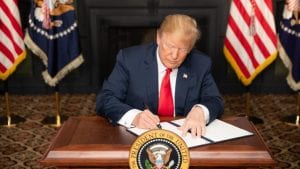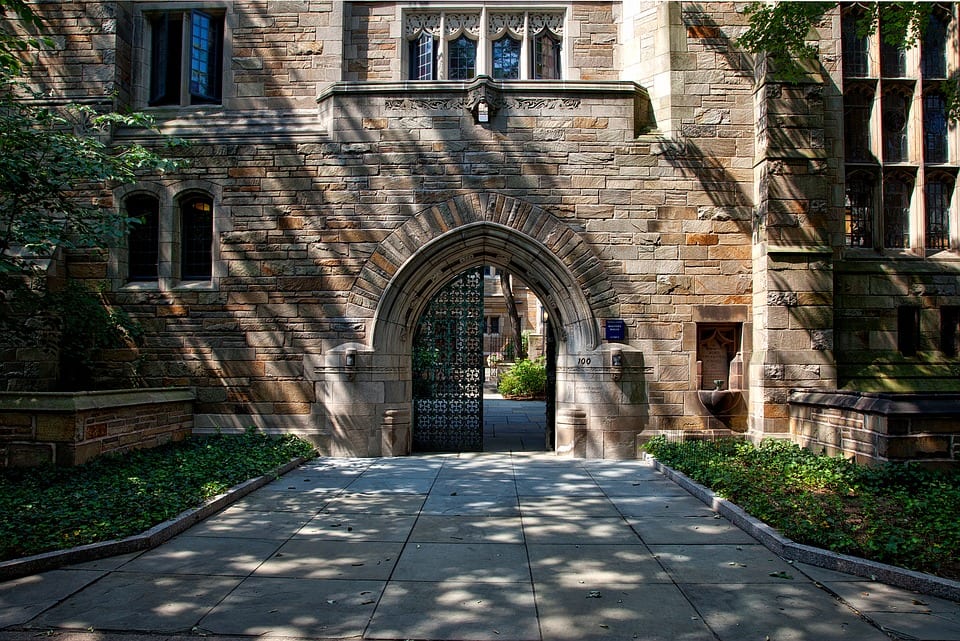International students, college administrators, and politicians have blasted the Trump administration’s decision to expel foreign students whose colleges and universities are moving classes online amidst the coronavirus pandemic.
The Boston Herald reports that, on Monday, the U.S. Immigration and Customs Enforcement reversed temporary relief measures it had extended to F-1 and M-1 student visa holders. While ICE had previously allowed international students to take the majority of their classes online—at least for the duration of the pandemic—it has since announced that students with remote curricula could face deportation unless they either change their schedules or transfer to institutions with offline offerings.
Acting Department of Homeland Security Secretary Ken Cuccinelli, whose agency overseas ICE, suggested the move is largely political, intended to “encourage schools to reopen.”
In an interview with CNN, Cuccinelli suggested “there isn’t a reason” for international students to remain in the United States if their classes are online.
“This is now setting the rules for one semester, which we’ll finalize later this month, that will, again, encourage schools to reopen,” he said.
However, Cuccinelli did say that the department’s current policy is more flexible than past renditions of the same.
“We’re expanding the flexibility massively to a level never done before so that schools can use hybrid models,” he said, adding that “anything short of 100 percent online” would allow international students to keep their visas and remain in the country.

But ICE and the Department of Homeland Security’s directive is problematic: many schools, including Harvard, have already announced that they will not be holding in-person classes this fall. The implications for foreign students, especially those from less affluent backgrounds, should be obvious: they will have to incur enormous expenses to break housing contracts, move their possessions, and travel back to their countries of residence.
The New York Daily News, for instance, spoke to Alexandra Panzarelli, a PhD student at The New School in Greenwich Village, New York.
“When I heard the news,” Panzarelli said, “I couldn’t even listen to it.”
Panzarelli, a Venezuelan national, said she hasn’t returned home in over three years due to Venezuela’s difficult security situation.
“To face a decision like this is quite dramatic,” she said. “These kind of messages create this panic and chaos in our lives.”
Officials at The New School, however, have indicated they will continue their plan to hold all-online courses.
“Our decision to conduct classes online this fall was made out of a prevailing sense of responsibility to prioritize community health and safety,” New School officials told students in an e-mail, partially reprinted by The New York Daily News. “It is important that any federal policy change respect such prudence.”
Grace Wang, a graduate student at Claremont McKenna College, told The Los Angeles Times that being forced back to China could easily jeopardize the quality of her thesis—in large part because she won’t have access to the same research materials and resources she would in the United States.
“For me to be inside the borders of mainland China—within the firewall—the quality of my thesis will not be close to the quality of research I will be able to conduct within the States,” Wang said.
Other students interviewed by the Los Angeles Times and New York Daily news reported a series of complaints similar to Wang and Panzarelli’s, ranging from the difficulty of having to pack up and move out of the U.S. on short notice to dealing with time zone differences and unreliable communications infrastructures in their home countries.
“It seems like these laws are more affecting the low-income people,” Panzarelli told the Daily News. “Because if you really have money, it’s more possible to maybe enroll in another university.”
Similarly, Charlie Baker, the Republican governor of Massachusetts, said the administration’s decision to potentially expel foreign students seemed somewhat ill-considered.
“People ought to make decisions they need to make at the time they need to make them with the best information they have,” Gov. Baker said on Tuesday. “I think this one was a little premature.”
Sources
International students upended, unsure if they can continue U.S. studies amid new federal rules
‘Panic and chaos’: NYC international students, colleges react to new ICE rule on remote learning
Trump Visa Rules Seen as Way to Pressure Colleges on Reopening


Join the conversation!